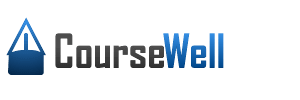Medical Administration Careers: 3 Tricks Medical Scribes May Use to Confront Daily Challenges
by Walter Rodriguez, PhD
Eleanor Roosevelt famous quote, “Do one thing every day that scares you,” challenges us to do things that may be uncomfortable at first.
I recalled Eleanor’s advice the first time I found myself looking for a job, after being laid-off from a part-time weekend job … where I traveled throughout Florida helping stage healthcare training seminars. Although the job was very demanding, I thought “I really need to work those extra hours” in order to make ends meet and support my young family.
At the time, I was just in my early 30s, a graduate student at University of Florida, and the father of a 6-year old daughter and a 1-year old son.
By heeding Eleanor’s advice, I was able to confront my fears … rather than despair, I viewed my situation as another challenge. I also made a mental inventory of my skills. For instance, I still had my experience conducting seminars and I was a fairly good learner and teacher.
Well … that’s the short story about how I confronted my challenge, after being fired. The happy ending is that I later graduated from UF and found a great job as an assistant professor. And I am still enjoying what I have done for over 30 years: teaching and trying to help others in similar situations.
Below are three tricks you may use to confront a daily challenge:
1. Visualize yourself being on your desired situation
By using your imagination, you can prepare yourself for success. For instance, if you are looking for a job, you may close your eyes and visualize yourself being on an interview and answering questions with confidence. You imagine talking about your life and work experiences and showing that you enjoy learning new things. Imagine yourself being confident and friendly and visualize your interviewer shaking his/her head in agreement.
2. Find a mentor or adviser or coach
Accept yourself: both your strengths and weaknesses. We all have them. And think “I don’t have to solve all the problems by myself.” You can usually find an experienced friend, family member, mentor or adviser to guide you and help you navigate the rough times. You will be surprised how many people want to help you and your family. Finally, look for challenges and opportunities in your field*.
3. Consistency of Purpose
Once you decide what you want to do, keep doing it every single day, consistently. For instance, if you are looking for a job, keep refining and posting your resume every day. Consider volunteering to work in the community and seeking contacts that will help you with your job search. Of course, if you find yourself lacking the right skill-set and academic preparation, you should consider matriculating in a community college, vocational school or online training program in a high-demand area that you would enjoy.
*What are the Medical Scribe Challenges and Opportunities?
Source: Extracted from a Medical Scribe course developed by Valerie Weiss, MD
"Challenge of Regulatory Requirements: In the medical practice, there are a burdensome amount of documentation requirements (i.e., data, information) that must be entered into a myriad of computer information systems. These system involve a series of complex processes that are employed in hospitals nationwide.
Challenge of Continuous Change: Within each hospital, there are additional frequent changes to what needs to get documented and how. There is so much constant change and mounting documentation responsibility levied on the medical provider that the traditional paradigm of the medical provider who performs his or her own unassisted documentation or dictates into a recorder has proven to be uneconomical, inefficient and unsustainable. To thousands of health professionals who have been chiding at the forced changes to their medical record documentation practices, the silver lining in acclimating to this struggle is scribes.
Job Opportunities: The medical scribe industry has exploded in growth, thanks to the regulatory requirements and changes affecting medical records. For instance, in 2008 there was only 1 medical scribe vendor at the American College of Emergency Physician’s annual conference and approximately 500 scribes nationally. This year, there are 8 vendors and approximately 6,000 scribes. With tremendous growth, comes a natural need to regulate performance. Today, we have the opportunity to do so. If we are to remain in control of our destiny as an industry, we have to establish minimal performance requirements and advocate for compliant practice of appropriate scribe use among medical providers, individual scribes and scribe vendors. If we do not act responsibly with this opportunity then the medical scribe industry will be contaminated by the unscrupulous practice of those who wish to call themselves scribes while engaging in unsupported behavior. By obtaining your scribe certification through the Medical Scribe Certification & Aptitude Test you are distinguishing your training and practice, ensuring that employment as a scribe continues for you and is available for future generations aspiring for a career in the health-related sciences. Certification matters.
Work Environment: The scribe-provider work relationship is a familiar experience to medical providers who were initiated as medical students who learned to work with interns, who likewise learned to work with residents, who likewise learned to work with attending physicians. There are 2 major differences however. Scribes are strictly non-clinical, documentation assistants, and the medical provider is not responsible for teaching the scribe medicine. Notwithstanding the differences, scribes learn a great deal of clinical medicine simply by witnessing and documenting the provider’s interaction with patients. For these reasons, being a scribe is the best job any pre-health major could have."

